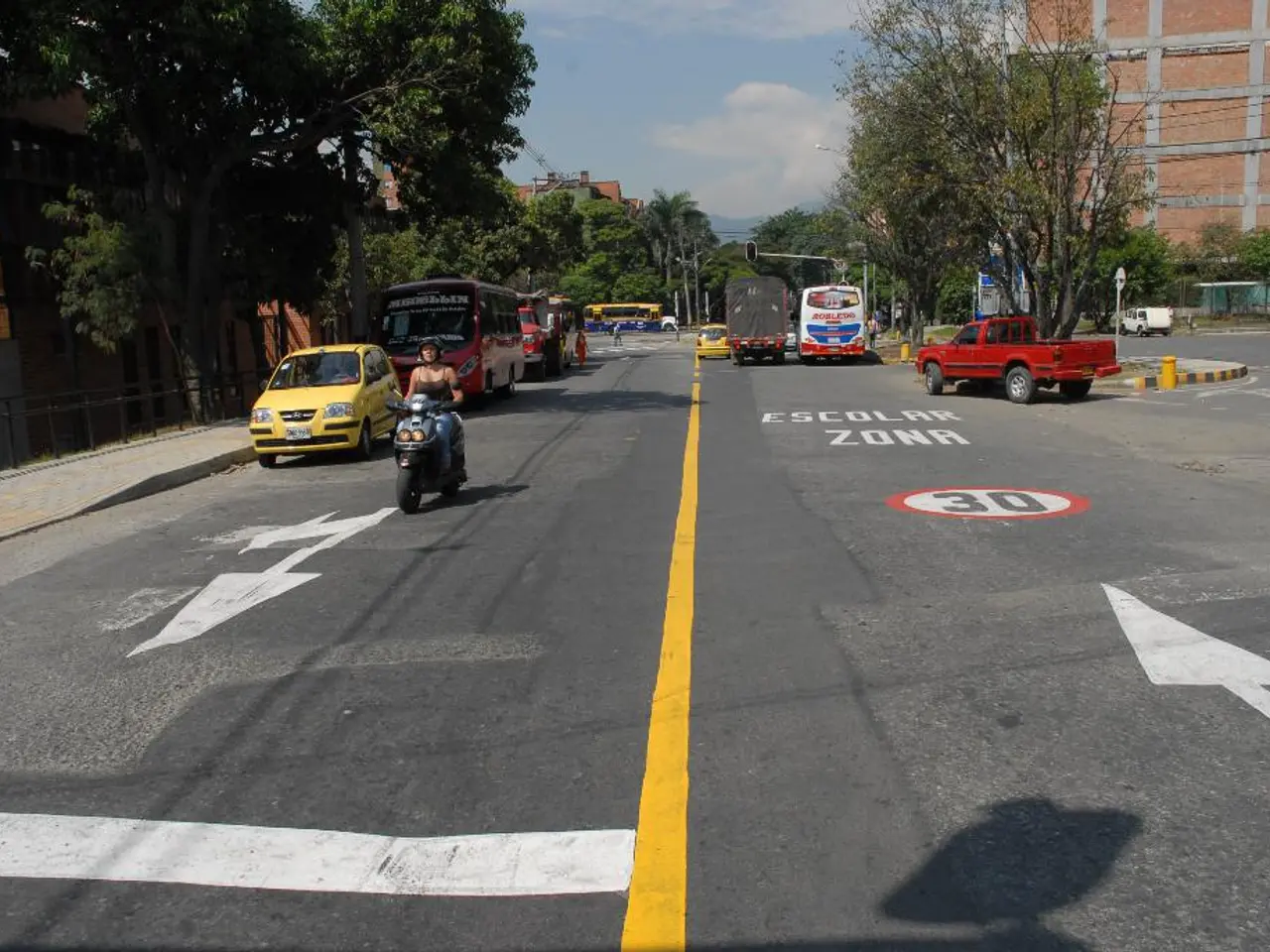Motorists face potential £1,000 fines for engaging in a widespread courteous behavior on the road
Headline: Flashing Headlights to Warn of Speed Cameras Could Lead to Fines and Legal Consequences
In a move to ensure road safety and uphold the law, Lancashire Police have been cracking down on motorists who flash their headlights to warn others of speed cameras or police presence. This practice, while not explicitly listed as a legal penalty in the Highway Code, can lead to fines and potentially more serious legal consequences.
Since 2012, there have been very few reports of operations linked directly to headlight misuse. However, in 2012, Lancashire Police issued fines to 20 motorists for this very offence. PC Antony Gray from Lancashire Police's road policing unit stated that flashing headlights to warn of speed traps exacerbates the problem of speeding.
The Highway Code does state that drivers should only flash their headlights to let other road users know that they are there and should not do so to intimidate other road users. Violating this rule can be used as evidence in court if linked to a collision.
The penalty for such actions is more related to the interpretation of the law rather than a specific clause in the Highway Code. The act could be interpreted under more general legal principles, such as "obstructing a police officer in the execution of their duty" or "perverting the course of justice," which could potentially lead to fines, such as a £1,000 fine as mentioned in recent discussions.
The Police Act (1997) does not specifically address the issue of flashing headlights to warn of speed cameras. However, the general principle of obstructing police officers or perverting the course of justice could apply, depending on how the action is perceived by law enforcement.
This gesture is in breach of Rule 110 and 111 of the driver's manual, which states to only flash headlights to let other road users know of your presence. The AA advises motorists to follow Highway Code instructions and only flash their headlights to let other road users know they're there.
The AA also warns against flashing headlights to send any other message, intimidate road users, or assume that flashing headlights means it's safe to proceed. Instead, they encourage motorists to use their own judgement and proceed carefully.
It's important to note that warning oncoming motorists of a speed camera or police presence with headlight flashing is illegal. The incorrect use of vehicle lights can result in a fine of up to £1,000. Furthermore, this violation is in breach of section 89 of the Police Act (1997), which involves 'wilfully obstructing a constable in the execution of their duty'.
In summary, while the specific penalty is not clearly defined in either the Highway Code or the Police Act (1997), the act of flashing headlights to warn of speed cameras or police presence can lead to legal consequences if interpreted as obstructing or interfering with police operations. It's always best to adhere to the rules of the road and let the authorities handle enforcement.
- In the transportation industry, flashing headlights to warn others about speed cameras is illegal and can result in fines, potentially reaching up to £1,000, due to it being perceived as obstructing police officers in the execution of their duties.
- The insurance industry may take into account such violations of the Highway Code, as they could increase personal-finance risks by leading to fines, higher insurance premiums, or even points on a driving record.
- General news outlets and crime-and-justice sections may cover cases involving fines issued for flashing headlights to warn of speed cameras, as these incidents can be seen as attempts to interfere with law enforcement and the rule of law.
- As understanding of the transportation and automotive industries evolves, stakeholders within the finance sector should consider the potential legal and financial repercussions associated with flashing headlights to warn of speed cameras when providing advice on personal-finance matters or developing insurance policies.




